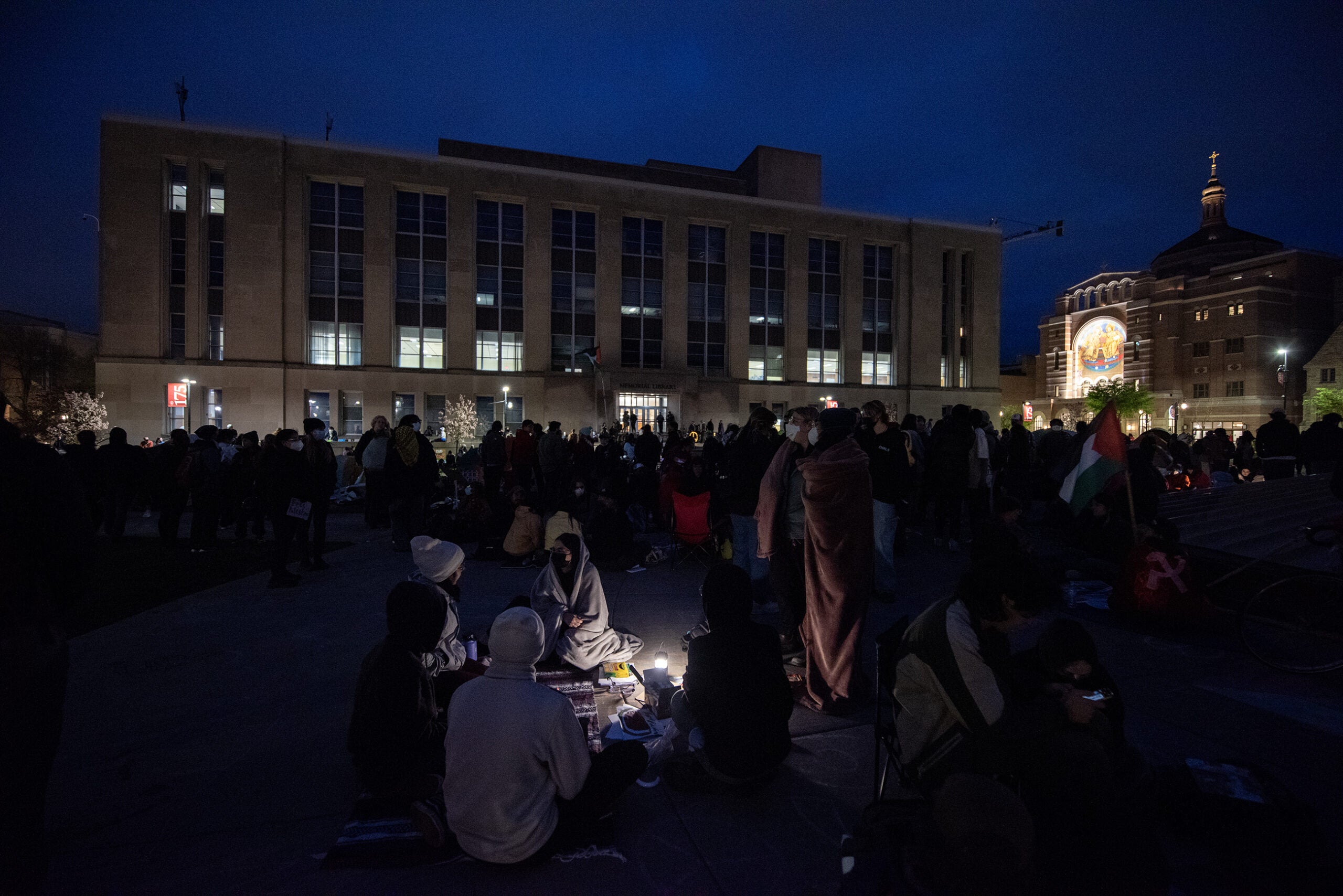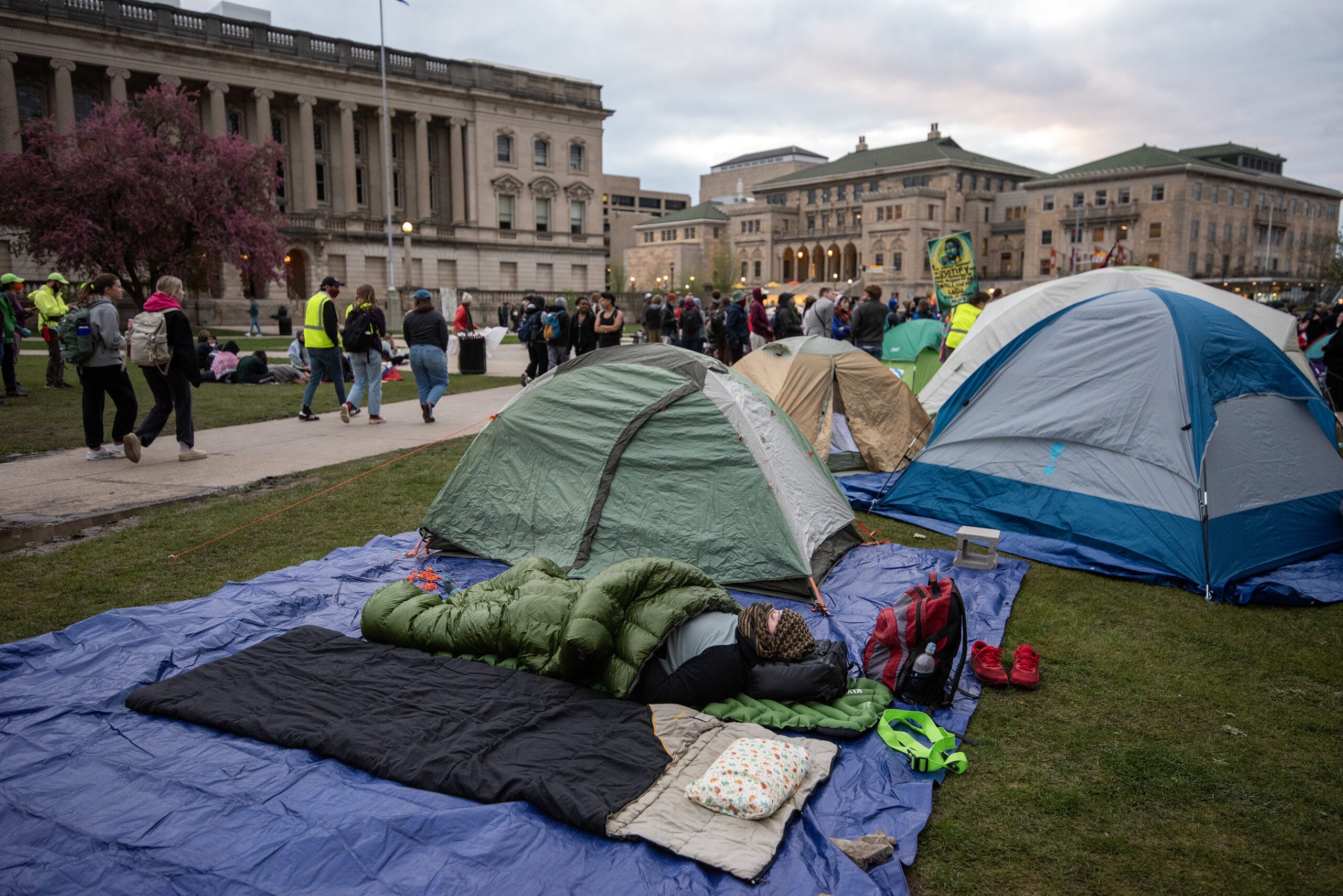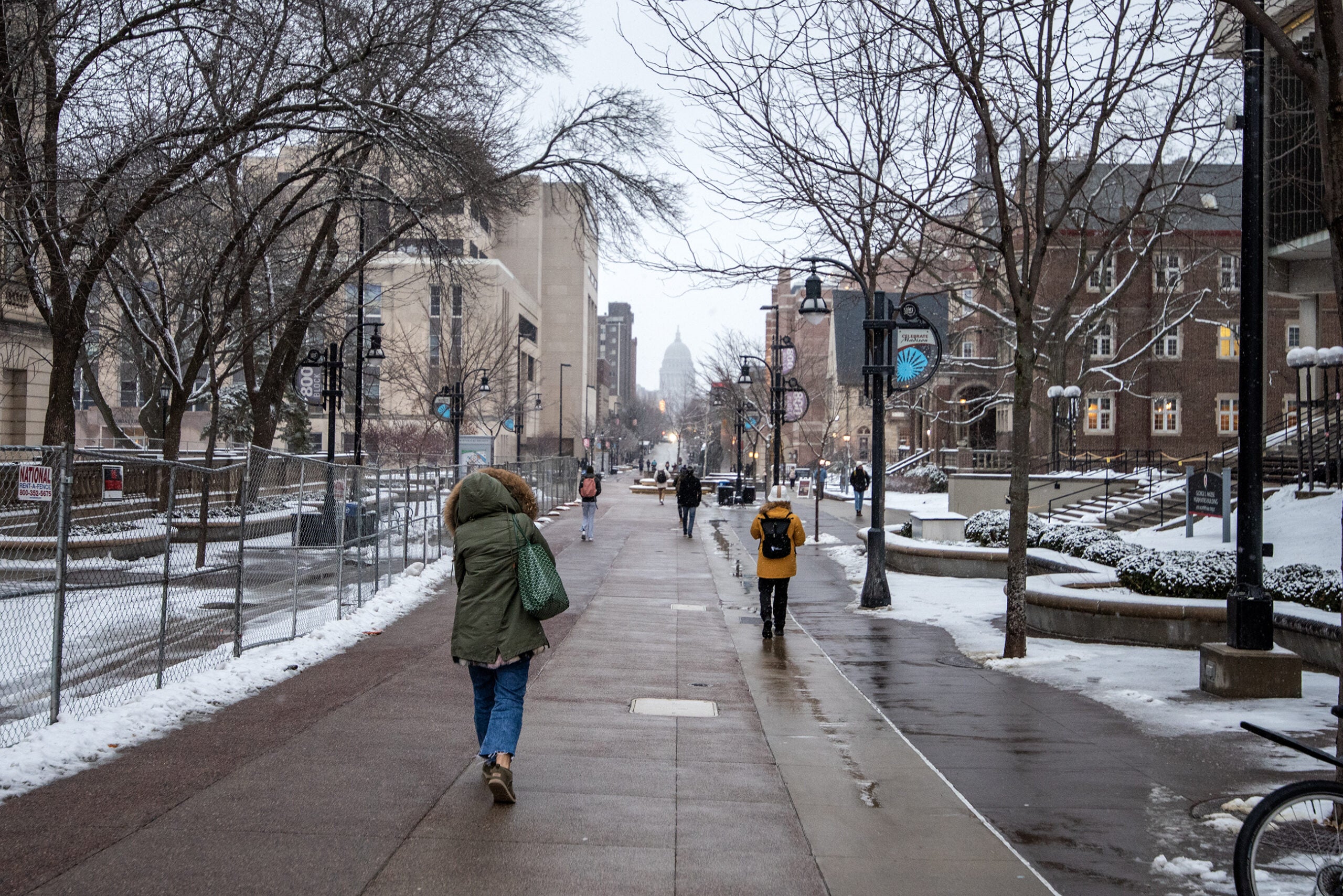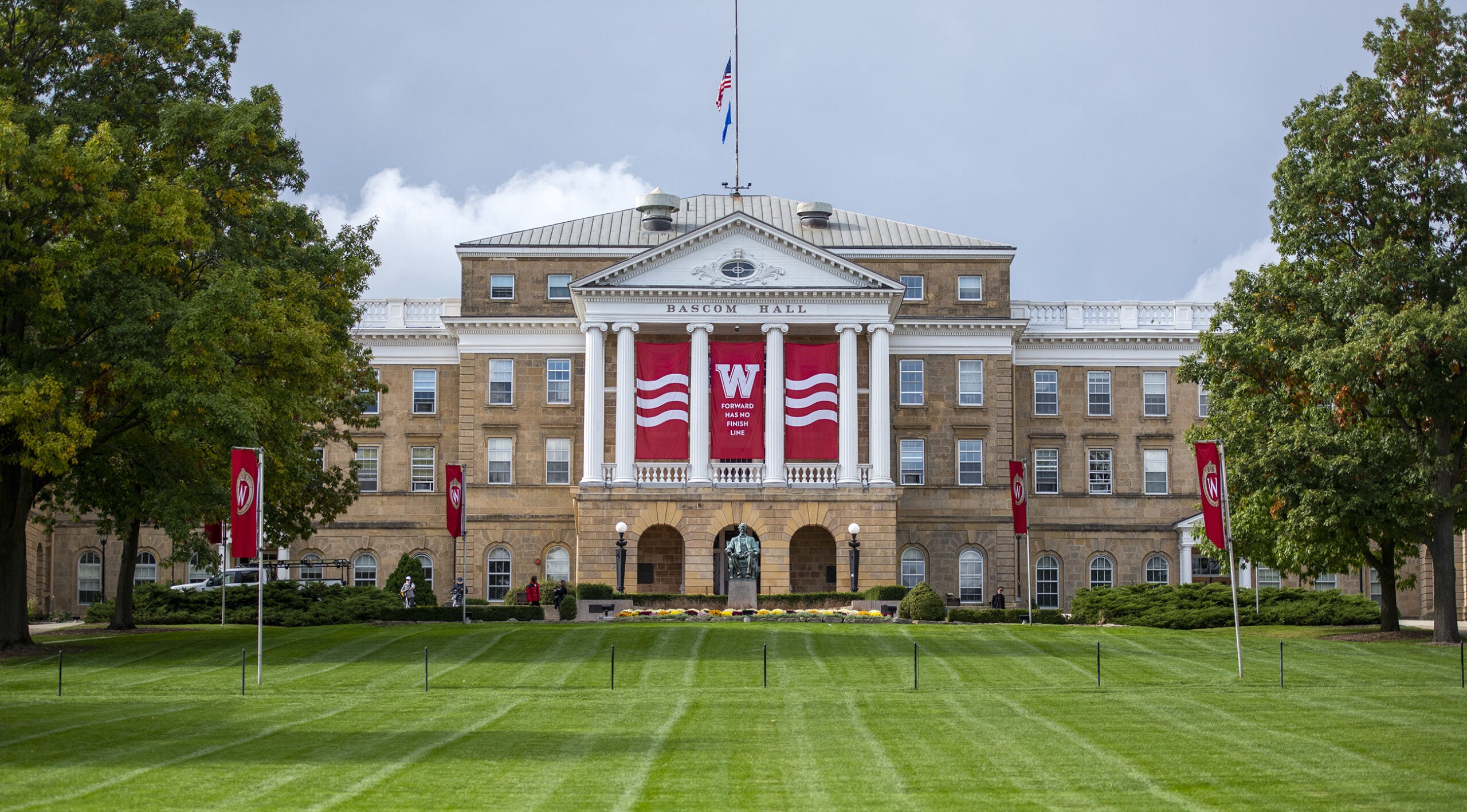Recent visa terminations are making international students in Wisconsin worry about their future, and take precautions like removing social media and not participating pro-Palestinian organizing.
Across the nation, hundreds of students and university staff have had their visas revoked this year. Some high profile cases have been international students who participated in pro-Palestinian protests.
“We gave you a visa to come and study and get a degree, not to become a social activist that tears up our university campuses,” Secretary of State Marco Rubio told reporters on March 27.
News with a little more humanity
WPR’s “Wisconsin Today” newsletter keeps you connected to the state you love without feeling overwhelmed. No paywall. No agenda. No corporate filter.
Visa terminations with ‘unclear rationale’
In Wisconsin, recent visa terminations included 27 students and alumni at UW-Madison, and another 16 students from Universities of Wisconsin schools, including 13 from UW-Milwaukee. On Tuesday, a judge announced an international student from UW-Madison couldn’t be deported for now.
While the university said it doesn’t believe the visa terminations are related to participation in free speech events or political activity, the rationale is unclear.
“I think a lot of the fear comes from people not knowing who is going to get their visa revoked, and also why,” said a current UW-Madison graduate student from Pakistan.
“These circumstances are unprecedented, and UW-Madison is committed to the well-being of our entire international community,” said Dean Fran Vavrus, of UW-Madison’s International Division in an April 11 statement.
The student from Pakistan, who asked to remain anonymous, came to Wisconsin to study environmental natural hazards.
“You’re told for many, many years that you should go to the U.S. for school, because it’ll give you all these opportunities … and you’ll be safer and horizons are wider,” she said. “And then, at least for me … it’s actually really scary to be here. And it’s not clear how much wider the horizons actually are.”
The student has been in the U.S. since 2016, when she came on a student visa to earn her bachelor’s degree.
“The only place I’ve been an adult is the U.S.,” she said. “All my friends as an adult are in this country.”
She’s taken precautions to not become a target for visa termination. Last year, before she started graduate school, she said she attended pro-Palestinian protests while living in Washington, D.C.
“I’m off social media now,” she said. “I, on a daily basis, go from being not worried at all, to being, like, ‘I’m next on the list.’”
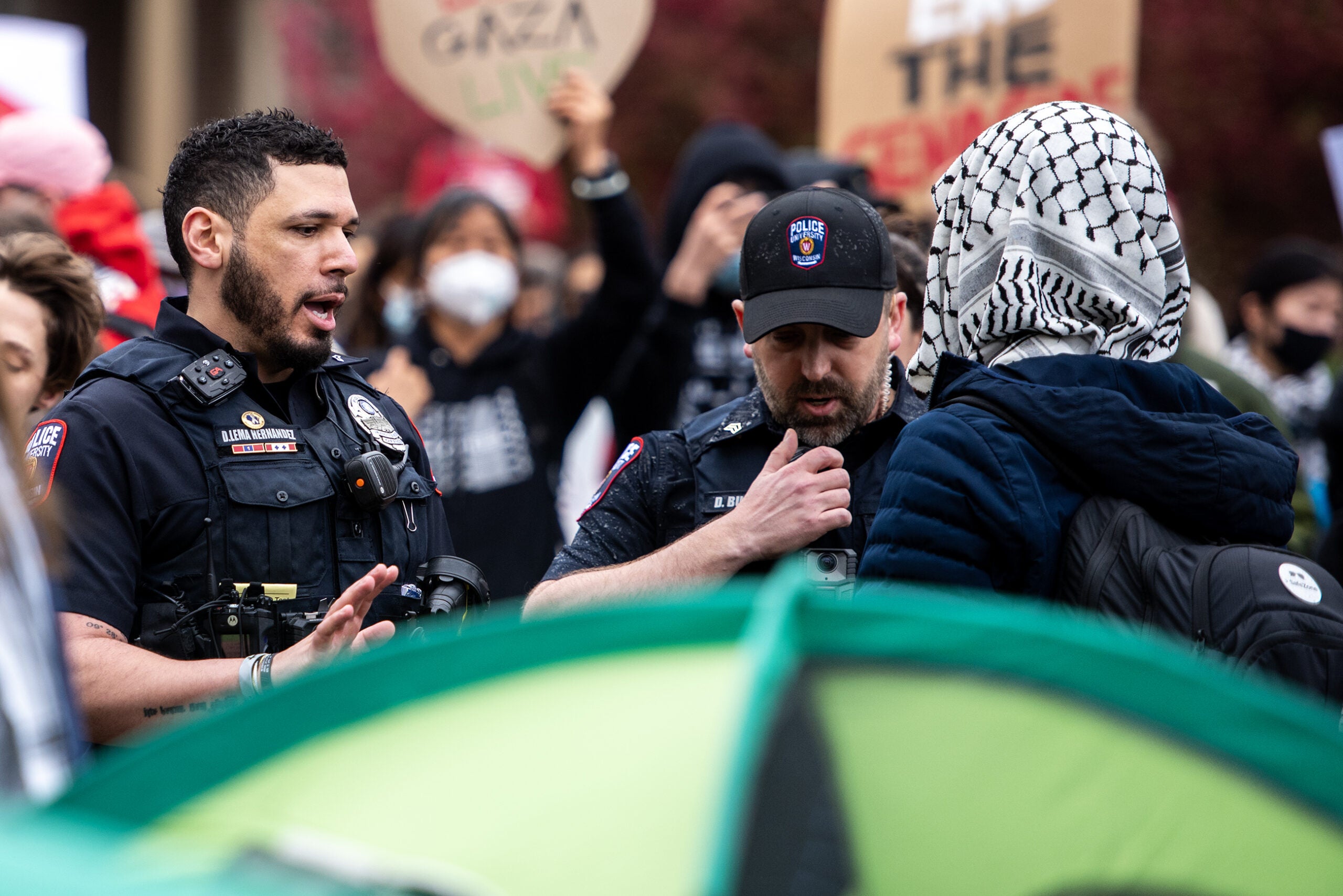
She said her friends who were more involved in pro-Palestinian organizing are even more worried.
“I have friends who have removed their profiles from their university websites and deleted their LinkedIns,” she said. “I have friends who have moved out of their apartments.”
She said while the fear is potent now, it’s not the first time she’s felt unsafe in the U.S. as an international student.
“My first year, I was really, really scared that Pakistan was going to be on the travel ban list,” she said.
UW student organizers notice a shift
At UW-Madison, recent actions by the Trump administration have both had an effect on student organizing and renewed calls for protest, said Students for Justice in Palestine member Dahlia Saba.
“There is an intentional targeting of the most vulnerable members of the community who’s speaking up for Palestine,” Saba said. “It makes it all the more urgent for those of us who are U.S. citizens, and you have more of that protection, to speak up.”
At UW-Milwaukee, Students for Justice in Palestine organizer Waleed Nassar said some of the biggest supporters of last year’s protests, including Palestinian and international students, are now afraid to participate.
“They wonder if it’s worth the risk now,” Nassar said.
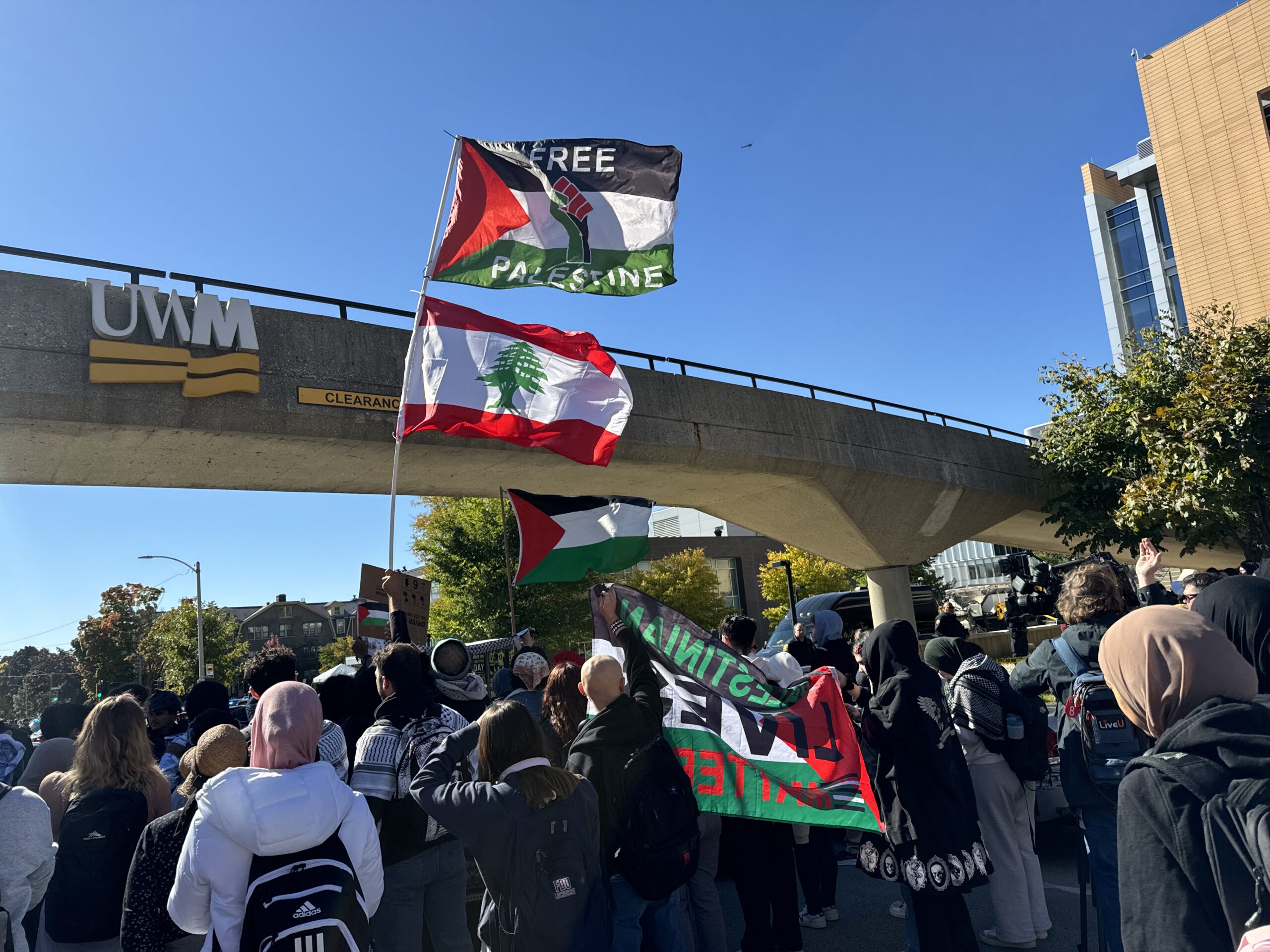
Students who are American citizens and have family who are immigrants are also are hesitant, he added.
“Some people don’t want to speak out, because they’re afraid … what might happen to their family,” Nassar said.
The Trump administration has taken action against universities where students held pro-Palestinian protests last year, accusing student protesters of pro-Hamas activities and antisemitism.
UW-Madison was one of 60 institutions threatened with a loss of federal funding if they fail to protect Jewish students.
There were allegations of antisemitism during some protests on Wisconsin campuses last year. In July, UW-Milwaukee temporarily suspended a pro-Palestine student coalition, citing antisemitic language on their social media.
Free speech expert weighs in
“I certainly understand why students can feel a chilling effect from this,” said Donald Downs, an emeritus UW-Madison professor and prolific scholar on free speech and academic freedom. “The question is whether or not that the First Amendment allows that kind of chilling effect to occur.”
The courts will have to decide, on a case-by-case basis, whether the Trump administration can deport students because of their involvement in pro-Palestinian protests, he said.
“I think the Trump administration, like they’re doing with everything else, they’re pushing the limit as much as they can to see what they can do,” Downs said.
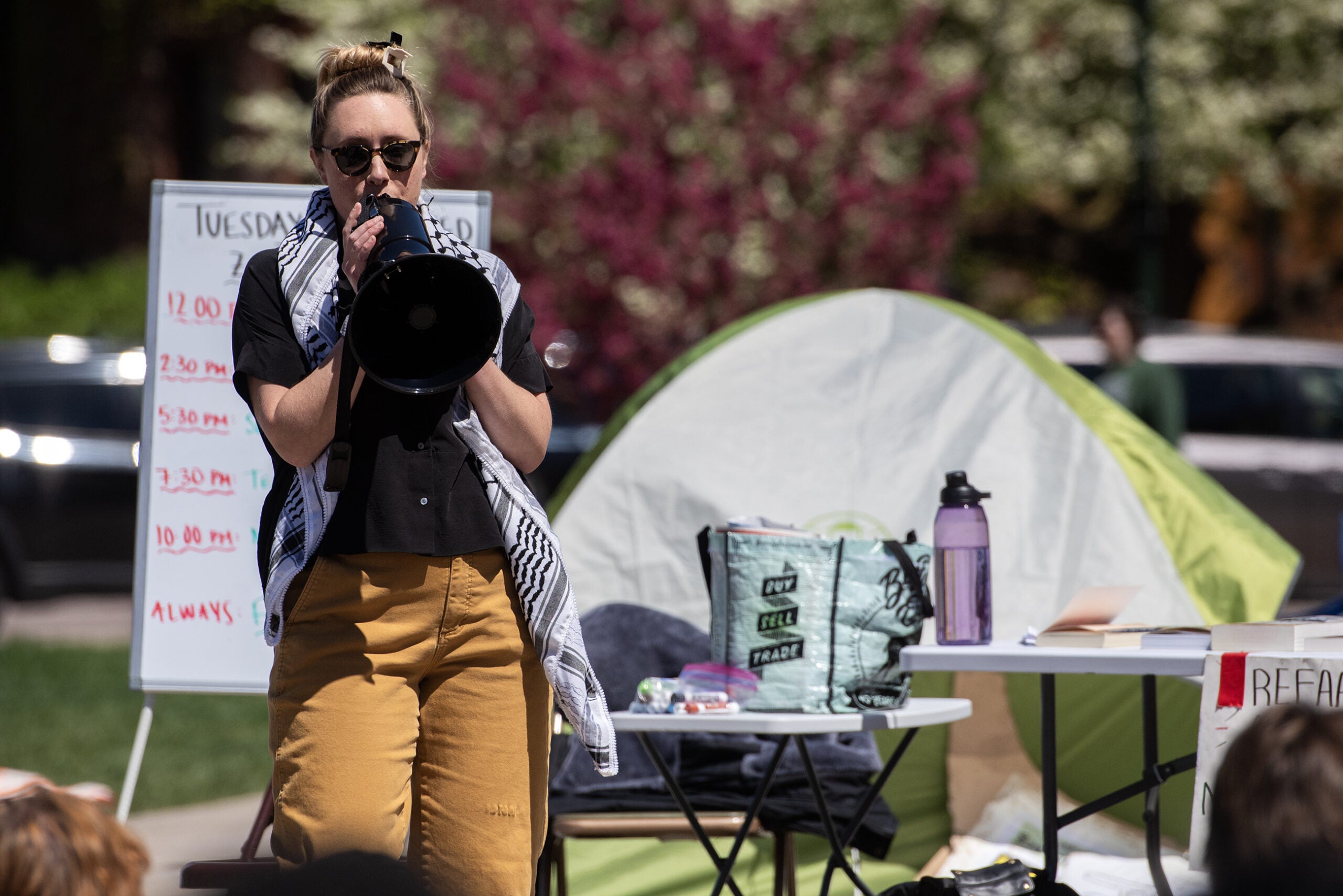
For example, deporting students for speech the administration believes is “anti-American,” would likely not be allowed, he said.
“[If] you join a pro-Hamas demonstration, and you’re expressing your views, however reprehensible anyone might find them, that is protected by the First Amendment,” Downs said. “And that needs to be made clear.”
But other actions are not protected under free speech, he added.
“If you’re acting at the behest of a terrorist group, or if you’re coordinating with them in some way, then that crosses a line. But that’s a factual question that would have to be decided in each case,” Downs said. “The government has some legitimate concerns here, but so do protesters.”
Uncertain futures
The UW-Madison graduate student from Pakistan said it’s difficult for students in her position to plan for the future without knowing the government’s next move.
“What’s the point of really stressing about finals … or my classes next semester?” she said. “Should I sign a lease for next year?”
WPR spoke with another international student from Canada, who asked to remain anonymous. She said while she wasn’t involved in pro-Palestinian protests, it hasn’t stopped her from being worried about her visa possibly being terminated.
“I do not think that I, personally, am an individual target of this action,” she said. “But I don’t necessarily know that that would stop somebody like me from being swept up in it.”
If she cannot finish her Ph.D. in humanities and apply for academic jobs in the U.S., it will end a dream she worked hard for, she said.
“I have been gunning for a career in academia for almost 10 years,” she said. “There are not that many major universities in Canada … if the United States is closed to me or to any international scholar, that severely limits our options.”
In the meantime, anxiety around travel prevails in international student circles, she said.
“Many of us, we feel unsafe in the country,” the student said. “And we also do not feel at liberty to leave in case we are not able to get back. ”
Wisconsin Public Radio, © Copyright 2026, Board of Regents of the University of Wisconsin System and Wisconsin Educational Communications Board.

